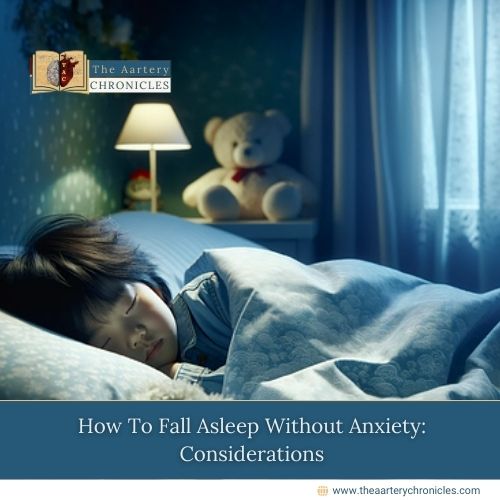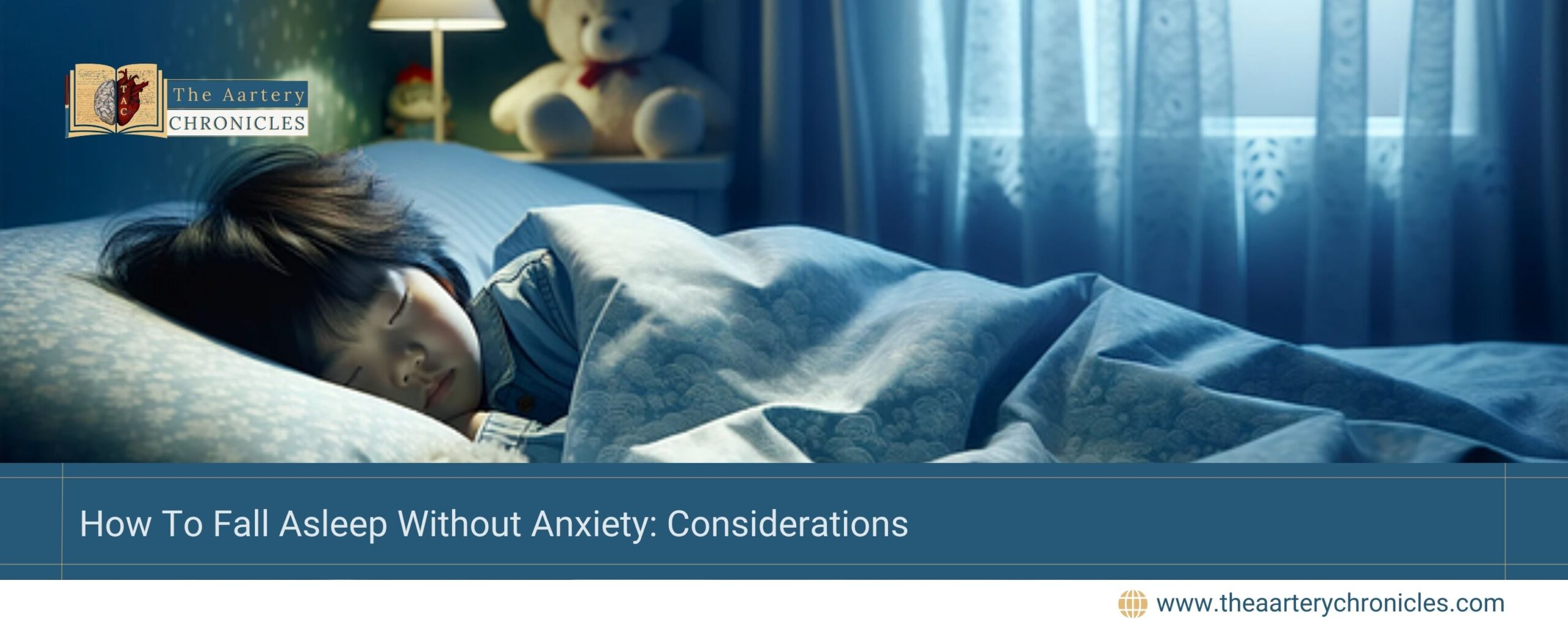

How To Fall Asleep Without Anxiety: Considerations
Introduction
Anxiety is a condition that affects many people and can make it difficult to sleep. However, there are effective strategies to cope with and reduce anxiety, allowing you to fall asleep more easily. In this article, we will explore various techniques and tips on how to fall asleep without anxiety, highlighting the best practices to improve the quality of sleep.
Causes Of Night Anxiety
Nighttime anxiety can have several causes, including:
- Work or personal stress
- Financial concerns
- Health problems
- Relationship conflicts
- Messy lifestyles
Recognizing the causes of anxiety is the first step to dealing with it effectively.
Techniques To Reduce Anxiety Before Bed
1. Create A Relaxing Evening Routine
Regular nighttime activities can signal to your body that it’s time to rest. Some activities that can help include:
- Read a book: Choose a relaxing book, avoiding overly stimulating ones.
- Meditation: Practicing meditation or mindfulness to calm the mind.
- Bath With Warm Water: Taking a warm bath can relax your muscles and prepare your body for sleep.
- Listen to relaxing music: Music with low tones and slow rhythms can help reduce anxiety.
2. Limit The Use Of Electronic Devices
Blue light from cell phones, tablets and computers can interfere with the production of melatonin, the sleep hormone. It is advisable to:
- Before you go to bed, turn off your devices for at least an hour.
- Use a night mode or blue light filter on your screen.
- Opt for non-electronic activities, such as reading or listening to audiobooks.
3. Practice Breathing Exercises
Breathing exercises can calm the nervous system. An example is the 4-7-8 formula:
- Inhale for 4 seconds.
- Hold your breath for 7 seconds.
- Exhale slowly for 8 seconds.
Repeating this cycle a few times can help reduce anxiety and promote sleep.
Improve Your Sleep Environment
A sleep-friendly environment is crucial to falling asleep without anxiety. Here are some tips:
1. Keep Your Bedroom Cool And Dark
The temperature and brightness of the room influence the quality of sleep:
- Temperature: Maintain a cool temperature, around 18-20 degrees Celsius.
- Darkness: Use curtains or blinds to block out light.
2. Use A Comfortable Mattress And Pillows
Investing in a good mattress and the right pillow can make a big difference:
- Mattress: Choose a mattress that adequately supports your body.
- Pillows: Use pillows that maintain good neck and back posture.
3. Eliminate Disturbing Noises
Noises can interrupt sleep and increase anxiety:
- Earplugs: Use earplugs to block out outside noise.
- White Noise: Use white noise machines or dedicated apps to mask disturbing noises.
Nutrition And Sleep
1. Avoid Stimulating Foods And Drinks
Certain foods and drinks can disrupt sleep:
- Caffeine: Avoid coffee, tea and energy drinks in the evening hours.
- Alcohol: While it may initially help you sleep, alcohol can disrupt your sleep cycle.
- Heavy foods: Avoid heavy meals before bed.
2. Favor Foods That Promote Sleep
Certain foods can enhance the quality of sleep
- Warm milk: Contains tryptophan, which promotes the production of melatonin.
- Bananas: Rich in magnesium and potassium, which help relax muscles.
- Nuts and Seeds: Natural sources of melatonin and magnesium.
Concern Management
1. Keep A Journal
Writing out your worries on paper can help clear your mind:
- Worry Journal: Write down anxious thoughts before going to bed.
- Gratitude: Write down three positive things that happened during the day.
2. Practice Gratitude
Gratitude can reduce anxiety and improve overall well-being:
- Gratitude List: Maintain a list of things you are thankful for.
- Daily Reflection: Take a few minutes each evening to reflect on the positive things from your day.
Conclusion On How To Fall Asleep Without Anxiety
Falling asleep without anxiety is possible through a combination of strategies that include stress management, creating a sleep-friendly environment, and adopting healthy habits. Experimenting with different techniques and finding the ones that work best for you is essential to improving sleep quality and reducing anxiety.
Final Advice
Maintain A Nighttime Routine: Create habits that signal to your body that it’s time to rest.
Limit Electronic Device Use: Turn off screens at least an hour before bed.
Practice Relaxation Techniques: Such as meditation, breathing exercises, and writing a worry journal.
Frequently Asked Questions About Hypothermia
1. How can I reduce anxiety before bed?
Practicing meditation, breathing exercises, and creating a relaxing nightly routine can help reduce anxiety.
2. What foods can help you sleep?
Foods like warm milk, bananas, and nuts can promote better sleep due to their tryptophan and magnesium content.
3. How can I improve my bedroom environment to promote sleep?
Keeping your bedroom cool and dark, using a comfortable mattress and pillows, and eliminating disturbing noises are important steps.
4. What to do if anxious thoughts keep me awake at night?
Keeping a worry journal and practicing gratitude can help clear your mind of anxious thoughts.









